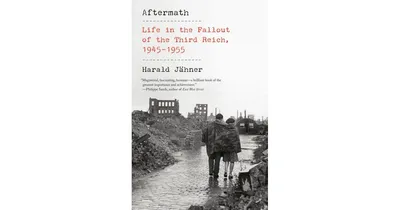Home
West German Industry and the Challenge of Nazi Past, 1945-1955



West German Industry and the Challenge of Nazi Past, 1945-1955
Current price: $47.50
Loading Inventory...
Size: Paperback
In the aftermath of World War II and the Holocaust, West German industrialists faced a major crisis in their public image. With mounting revelations about the use of forced and slave labor, the "Aryanization" of Jewish property, and corporate profiteering under National Socialism, industrialists emerged from the war with their national and international reputations in tatters.In this groundbreaking study, Jonathan Wiesen explores how West German business leaders remade and marketed their public image between 1945 and 1955. He challenges assumptions that West Germans--and industrialists in particular--were silent about the recent past during the years of denazification and reconstruction. Drawing on sources that include private correspondence, popular literature, and a wealth of unpublished materials from corporate archives, Wiesen reveals how German business leaders attempted to absolve themselves of responsibility for Nazi crimes while recasting themselves as socially and culturally engaged public figures. Through case studies of individual firms such as Siemens and Krupp, Wiesen depicts corporate publicity as a telling example of postwar selective memory.In his introduction and conclusion, Wiesen considers the recent establishment of a multibillion dollar fund to provide financial compensation to the victims of industrial exploitation during World War II. This acknowledgment by German industry of its ongoing responsibility for its past crimes underscores the contemporary relevance of Wiesen's study.In this groundbreaking study, S. Jonathan Wiesen explores how West German business leaders remade and marketed their public image in the aftermath of World War II and the Holocaust. He challenges assumptions that West Germans--and industrialists in particular--were silent about the recent past during the years of denazification and reconstruction, revealing how German business leaders attempted to absolve themselves of responsibility for Nazi crimes while recasting themselves as socially and culturally engaged public figures. Through case studies of individual firms such as Siemens and Krupp, Wiesen depicts corporate publicity as a telling example of postwar selective memory.


















